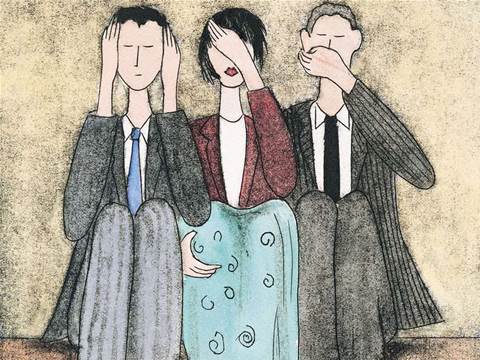The call was made after a SAGE-AU member and Internode engineer, Mark Newton, criticised the government and its Internet filtering policy on the Whirlpool broadband forum.
Subsequently, a policy advisor for Senator Conroy is reported to have expressed “serious concern” about Newton’s comments to a board member of the Internet Industry Association (IIA) and requested that this concern be passed to his employer, an IIA member.
SAGE-AU president Donna Ashelford defended Newton’s right to criticise the government’s plans, saying that SAGE-AU’s code of ethics required its members ‘to communicate with users about computing matters that may affect them’.
“It’s reasonable to state that the issue of Internet filtering is one of substantial impact on all Internet users,” said Ashelford.
"The Government's own figures indicate that all of the filtering systems trialled would impact Internet performance, as well as availability of legitimate services to varying degrees. To this end, Newton has undertaken his duties under the code to the fullest, and receives the full support for his position from the organisation.”
The government has previously come under fire on the issue of whether the proposed filters would eat into Aussie broadband speeds.
iTNews reported in August that the federal government had stepped away from some preliminary findings in the initial Australian Communications and Media Authority (ACMA) report, instead calling on ISPs to reserve judgement until a real-world trial was complete.
Ashelford said that SAGE-AU's position on the issue of Internet filtering was based purely on the technical feasibility of an Internet filtering solution.
“We remain concerned that the filters tested are unable to provide an effective, reliable filtering solution with the performance required for modern broadband connections," said Ashelford.
"The filters tested have demonstrated an excessively high exclusion rate of legitimate Internet content. To this end, we remain opposed to the implementation of Internet filtering in its current form and concerned about any attempts to silence legitimate discussion of Internet filtering plans."
SAGE-AU defends right to criticise content filtering
By
Staff Writers
on Oct 28, 2008 7:45AM

Got a news tip for our journalists? Share it with us anonymously here.
Partner Content
.png&h=142&w=230&c=1&s=1)
How mandatory climate reporting is raising the bar for corporate leadership

Promoted Content
Have ticket queues become your quiet business risk?

Shared Intelligence is the Real Competitive Edge Partners Enjoy with Crayon

Beyond the box: How Crayon Is Redefining Distribution for the Next Era

MSPs with a robust data protection strategy will achieve market success







.jpg&w=100&c=1&s=0)








_(1).jpg&q=95&h=298&w=480&c=1&s=1)


